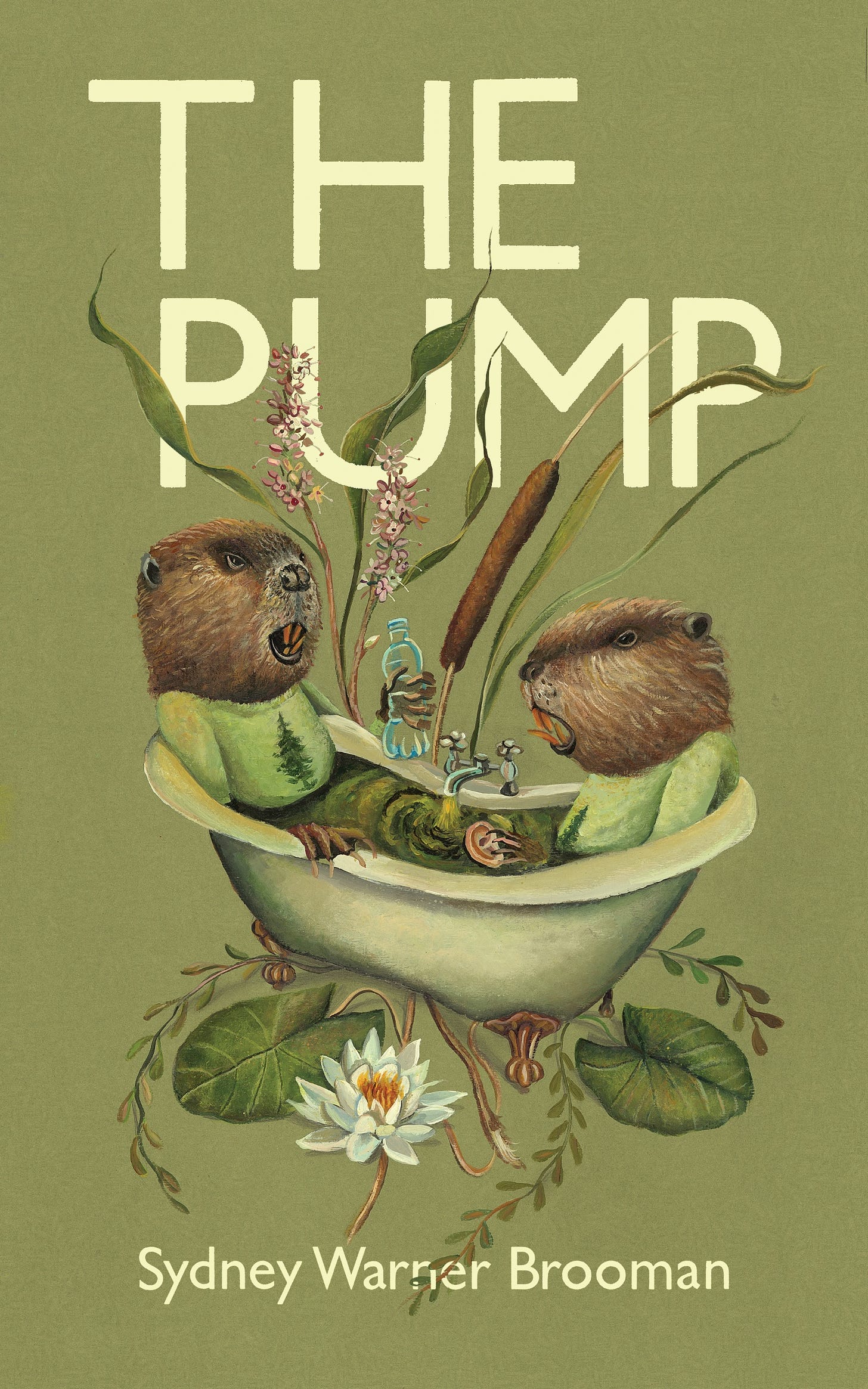Micro Interview with Sydney Hegele
Kathryn Mockler: What is your first memory of writing creatively?
Sydney Hegele: I wrote illustrated books for my family when I was seven. They were nonfiction books about various topics that I was certain I was an expert on. Examples include My Big Book Of Art, My Big Book Of Jakob (my younger brother), and My Big Book Of Dolphin Friendly Tuna. I drew informative diagrams, bound the books with pipe cleaners, and gifted them to my family members for holidays and Birthdays.
KM: How has the pandemic impacted your writing or creative life? Or what has writing in the pandemic been like for you?
SH: I used to be the kind of person who couldn't write at home no matter what. I needed to write at coffee shops and libraries and in parks. After the pandemic began, I had a stretch of six months where I couldn't write a single word. I was creatively blocked, in a way, I think because I had created strict parameters around my creative process. I tried lots of things to get writing again. Morning Pages. Reading my favourite books. Planning new work. Ultimately, what really worked was giving myself a break. I spent six months watching YouTube videos and working my tech Startup job and doing nothing creative, and one day I woke up and just had the urge to write, so I did.
KM: How did you come up with the concept of your forthcoming book The Pump which is a collection of interconnected stories based on a fictional town in southern Ontario.
SH: I grew up in Grimsby, Ontario, about an hour South of Toronto. When I first wrote The Pump, I was at a point in my life where I was trying to make sense of my childhood and adolescence, growing up below the poverty line in a small town that serves as a traumatic time capsule for me. Trauma memories are odd. I spent seventeen years of my life experiencing poverty and family violence, but my most visceral memories of my childhood are events that the entire town experienced: Our water treatment plant briefly shutting down; making our tap water undrinkable; a teenager older than me getting hit by a train; the summer it was no longer safe to swim in Lake Ontario. The Pump is not Grimsby, but a lot of inner details of the town—shops, street names, strange events—are taken from Grimsby. I didn't want to write a collection of many different stories: I wanted to write a story in which a Southern Ontario small town was the main character.
KM: How do the concerns around the climate crisis figure in The Pump and/or your other writing.
SH: So much of The Pump is about our relationship to a natural landscape that has decided it wants to take back its power after being mistreated for so long. The narrative at the core of the book follows a municipal government that lies about its drinking water being safe, which causes beavers in the marshes of the town to become carnivorous and turn on the population. The beavers, in my opinion, are not the villains of the story; The people in power are, and they reap what they sow. The beavers may be fictional, but the water crisis is not. Many Indigenous communities close to use do not have access to clean water. Flint, Michigan still does not have clean water. This is something all of us should be concerned about.
Sydney Hegele (they/them) (formally Sydney Warner Brooman) is the author of The Pump (Invisible Publishing 2021). They are the winner of the 2022 ReLit Literary Award for the best Canadian books published by independent presses, and a finalist for the 2022 Trillium Book Award. Sydney is also a Tin House Summer Workshop Alumnus (2021). They are a white settler, living with their Fiancé and French Bulldog in Tkaronto, covered by Treaty 13 with the Mississaugas of the Credit. They primarily write from the traditional territory of the Mississaugas of the Credit, the Anishnabeg, the Chippewa, the Haudenosaunee, and the Wendat peoples, which is currently home to many diverse First Nations, Inuit and Métis peoples.
The Pump
by Sydney Hegele
Invisible Publishing, 2021A Gothic collection of stories featuring carnivorous beavers, art-eaters, and family intrigue, for fans of Alice Munro and Shirley Jackson.
The small southern Ontario town known as The Pump lies at the crossroads of this world’s violence—a tainted water supply, an apathetic municipal government, the Gothic decay of rural domesticity—and another’s.
In Hegele’s interconnected stories, no one is immune to The Pump’s sacrificial games. Lighthouse dwellers, Boy Scouts, queer church camp leaders, love-sick and sick-sick writers, nine-year-old hunters, art-eaters—each must navigate the swamp of their own morality while living on land that is always slowly (and sometimes very quickly) killing them.
Issue #8 of Send My Love to Anyone
Micro Interview with Sydney Warner Brooman
Selected Journals Aug 11, 2020 - Oct 23, 2020 by Sarah Mangle
On Getting Focused by Kathryn Mockler
Sign up for the Weekly Send My Love to Anyone Writing Prompts (free)
Sign up for the Watch Your Head Newsletter (free)
Support Send My Love to Anyone
This newsletter is free, but you can support it by making a one-time payment to PayPal or by signing up for a monthly or yearly Substack subscription or through Pateron.
Big heartfelt thanks to all of the paying subscribers who help make this project possible!
Donated funds go to paying guest authors and maintaining the newsletter.
Connect
Twitter | Instagram | @themockler | Archive | Questions | Subscribe
Copyright © 2021 | All rights reserved.





